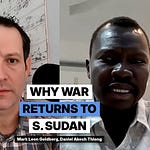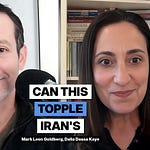It has been a whirlwind 12 hours. Last night, Donald Trump announced a ceasefire between Iran and Israel. Israel responded by launching its heaviest bombardment yet on Tehran, ostensibly before the ceasefire formally took hold. Iran responded with a missile attack, killing four Israelis in the southern town of Beersheba. Then, on his way to the NATO summit in the Netherlands, Donald Trump lashed out at the parties — particularly Israel — for violating the spirit of the ceasefire before it entered into force. And of course, all this comes after the U.S. struck several nuclear sites in Iran, and Iran mounted a performative attack on the largest American military base in the region.
Now, the entire world is in a sort of waiting game: Will the ceasefire actually hold? How might Iran respond to the unprecedented American attacks on its nuclear program? And more broadly, how have events over the last 12 days changed the entire security dynamic of the Middle East?
I’m privileged to bring you a conversation with one of the foremost experts on these questions. Dalia Dassa Kaye is a senior fellow at the UCLA Burkle Center for International Relations and author of the forthcoming book Enduring Hostility: The Making of America’s Iran Policy, which will be published in December. We kick off by discussing the events of the last few days before having a deeper conversation about Israel’s strategic calculus moving forward, Iran’s options for retaliating against the United States, and whether the American bombing of Iran may have traded short-term gains for a long-term disaster.
I’ve made this conversation freely available to all our subscribers. However, in order to keep bringing you thoughtful and timely episodes like this, I do need your support. Here are a few ways you can help keep Global Dispatches going strong. 👇
Or, you can support my work at full price using the button below.











